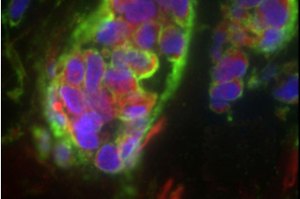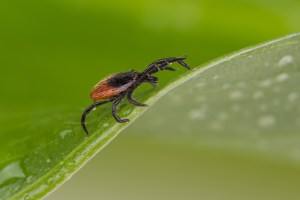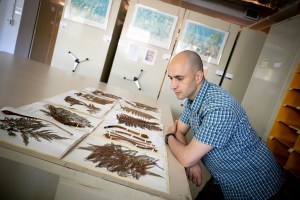Tag: Proceedings of the National Academy of Sciences
-
Science & Tech
Tracking rapidly changing patterns of suicidal thought
Smartphones enabled researchers to capture shifts multiple times a day, gathering data that could help guide more effective prevention.
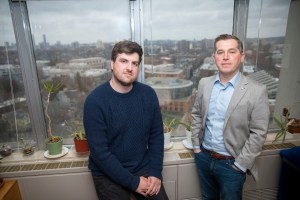
-
Science & Tech
Turns out developing a taste for carbs wasn’t a bad thing
Findings on Neanderthal oral microbiomes offer new clues on evolution, health.
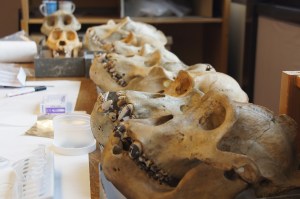
-
Science & Tech
How we handle stress at 45 linked to prenatal exposure
Men and women whose mothers experienced stressful events during pregnancy regulate stress differently in the brain 45 years later, results of a long-term study demonstrate.

-
Science & Tech
Know why conversations either seem too short or too long?
Conversations don’t end when people want them to because few people know how to end them politely, a Harvard study finds.

-
Science & Tech
From YouTube to your school
In a new paper, Harvard researchers show for the first time that research-based online STEM demonstrations not only can teach students more, but can be just as effective as classroom teaching.
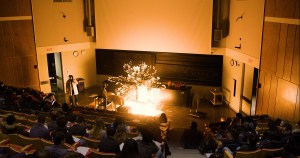
-
Science & Tech
Lessons in learning
Study shows students in ‘active learning’ classrooms learn more than they think
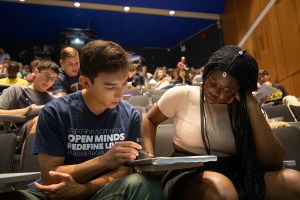
-
Health
Untangling the connection
Harvard Medical School researchers have found that impaired insulin signaling in the brain negatively affects cognition, mood, and metabolism, all components of Alzheimer’s disease.
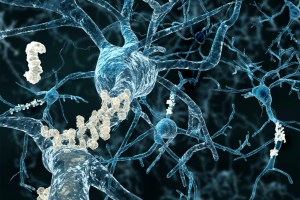
-
Science & Tech
Changing temperatures boost U.S. corn yield — for now
Increased production of corn in the U.S. has been credited largely to advances in farming technology, but new research shows that changing temperatures play a significant role in crop yield.

-
Work & Economy
Problem-solving techniques take on new twist
When solving problems, both groups in which members never interacted and groups whose members constantly interacted provided expected results. The surprising outcome came from groups whose members collaborated intermittently.

-
Health
Keeping the genetic code clean
Researchers have taken the first step toward removing unwanted cells by converting the CRISPR/Cas9 genome-engineering system into a genome-surveillance tool that removes newly occurring disease-associated mutations.
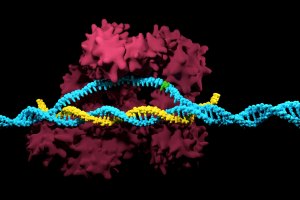
-
Health
Role of gut bacteria in averting Type 1 diabetes
Study finds guardian gene that protects against Type 1 diabetes and other autoimmune diseases exerts its pancreas-shielding effects by altering the gut microbiota.
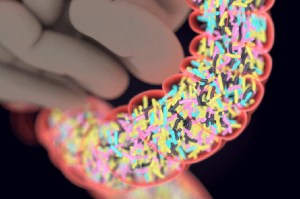
-
Science & Tech
Inequality’s influence
A new study has found that, following momentary exposure to inequality, support for a “millionaire’s tax” dropped by more than 50 percent.
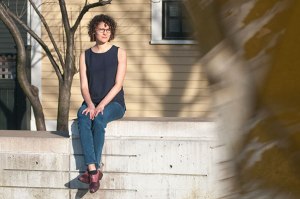
-
Science & Tech
Mitigating the risk of geoengineering
To halt the rise of global temperatures, Harvard researchers are looking at solar geoengineering, which would inject light-reflecting sulfate aerosols into the stratosphere to cool the planet.

-
Health
Human-gut-on-a-chip model offers hope for IBD sufferers
In a new study, the Wyss Institute’s human-gut-on-a-chip technology is used to co-culture gut microbiome and human intestinal cells, which could spur innovation of novel therapies for inflammatory bowel diseases.
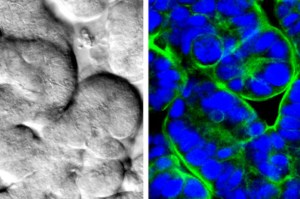
-
Science & Tech
How the brain builds new thoughts
A new study suggests that two adjacent brain regions allow humans to use a sort of conceptual algebra to construct thoughts.
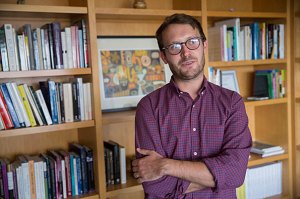
-
Health
How termites ventilate
Research led by a Harvard professor describes in detail how termite mounds are ventilated.
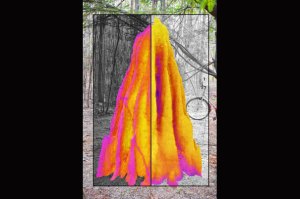
-
Science & Tech
When flames attack
Harvard researchers were able to predict when test flames in the lab were likely to switch from slow- to fast-moving fires, which could open the way to making similar predictions for forest fires.

-
Science & Tech
Magnetic attraction
Harvard scientists have developed a system for using magnetic levitation technology to manipulate nonmagnetic materials, potentially enabling manufacturing with materials that are too fragile for traditional methods.
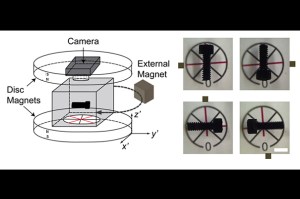
-
Health
A face is not a fish
A new study from Dartmouth and Harvard researchers looks at the mechanisms behind facial recognition.
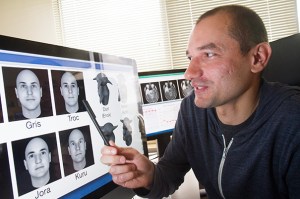
-
Health
Fin to limb
New research brings scientists closer to unraveling one of the longest-standing questions in evolutionary biology — whether limbs, particularly hind limbs, evolved before or after early vertebrates left the oceans for life on land.

-
Health
Malaria in 3-D
Using an imaging technique known as high-speed holographic microscopy, Laurence Wilson, a fellow at Harvard’s Rowland Institute, worked with colleagues to produce detailed 3-D images of malaria sperm — the cells that reproduce inside infected mosquitoes — that shed new light on how the cells move.
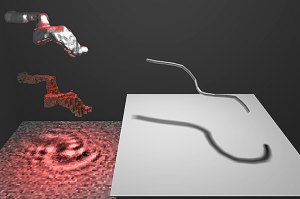
-
Science & Tech
The teaching launch
A new study found that middle school teachers can have a real impact not only on students’ short-term educations, but on whether they attend college and on the size of their future paychecks.
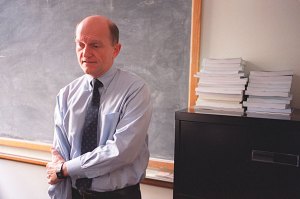
-
Science & Tech
The look of music
A new study by Chia-Jung Tsay, a musician and Harvard Ph.D., examines the power of visual information in evaluating classical music.

-
Science & Tech
Pitcher plants provide tipping point
New research out of the Harvard Forest offers insight on exactly when the tipping point occurs that can disrupt the intricate web of life in a lake.
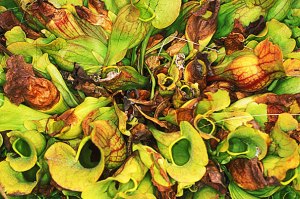
-
Science & Tech
Online learning: It’s different
By interspersing online lectures with short tests, student mind-wandering decreased by half, note-taking tripled, and overall retention of the material improved, said Daniel Schacter, the William R. Kenan Jr. Professor of Psychology, and Karl Szpunar, a postdoctoral fellow in psychology.
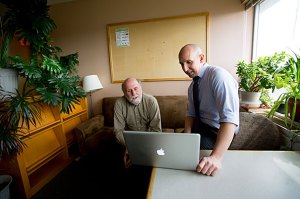
-
Science & Tech
When fairness prevails
Using computer simulations designed to play a simple economic “game,” researchers at Harvard’s Program for Evolutionary Dynamics showed that uncertainty is a key ingredient behind fairness. Their work is described in a Jan. 21 paper in the Proceedings of the National Academy of Sciences.

-
Health
Watching teeth grow
For more than two decades, scientists have relied on studies linking tooth development in juvenile primates with their weaning as a rough proxy for understanding similar landmarks in the evolution of early humans. New research from Harvard, however, challenges that thinking by showing that tooth development and weaning aren’t as closely related as previously thought.
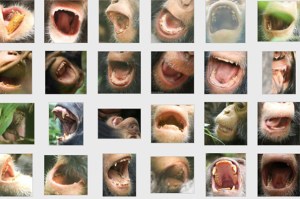
-
Science & Tech
Catch and release
Researchers designed a chip that uses a 3-D DNA network made up of long DNA strands with repetitive sequences that — like the jellyfish tentacles — can detect, bind, and capture certain molecules.

-
Health
Noncancerous cells carry weight
In recent years Harvard investigators have discovered that breast tumors are influenced by more than just the cancer cells within them.
